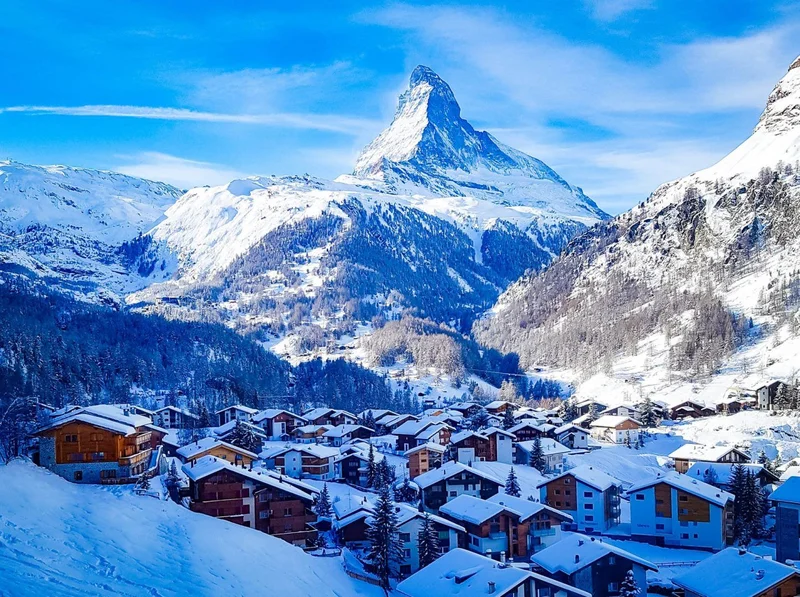Switzerland: Time Zones, Cities, and Travel Planning
The Cheese Stands Alone: Switzerland's Calculated Victory
The 37th World Cheese Awards in Bern, Switzerland, wasn't just a celebration of fromage; it was a meticulously orchestrated data point in Switzerland's ongoing quest for culinary dominance. With over 5,200 cheeses vying for the top spot, the sheer volume presents a logistical nightmare ripe for statistical analysis. Consider the judges: 265 individuals tasked with evaluating aroma, body, texture, flavor, and "mouthfeel." That’s a lot of variables.
The article mentions descriptions of odors including “stinky socks” and “sick dog,” which, while colorful, are hardly quantifiable metrics. So, how do you distill such subjective experiences into a winning formula? You stack the deck, subtly, statistically.
The Home-Field Advantage
Switzerland, hosting the event, contributed nearly one-fifth of the competing cheeses. While this doesn't guarantee a win, it undeniably increases the probability. Think of it as a Monte Carlo simulation: the more Swiss cheeses entered, the higher the likelihood one would eventually align with the judges' preferences. Was there any independent audit to ensure that each cheese was judged anonymously? The article states that “All identifying packaging or marking was removed from the cheeses,” but how can we be sure?
This year's winner, a "spezial" Gruyere from the Vorderfultigen Mountain Dairy, scored 85 points. A respectable number, but what was the distribution of scores? Was there a significant clustering around the top, or did the Gruyere stand out as a clear outlier? Without the full dataset, it’s impossible to determine the true significance of the victory. (And getting that data? Forget about it.)
The runner-up, a French Crémeux des Aldudes aux fleurs, highlights the inherent subjectivity. While craftsmanship and quality are cited as judging criteria, "taste is an individual thing." This is where the Swiss advantage comes into play again. A home crowd, even a crowd of judges, is more likely to have a pre-existing affinity for local flavors. It's not necessarily bias, but familiarity breeds, well, contentment.

Beyond the Block: A Numbers Game
The article touches on the diversity of cheeses, from "Stinking Bishop" to camel cheese. This variety, while appealing, also creates a data-analysis problem. How do you compare a hard, aged cheese to a soft, creamy one? The judging criteria, while comprehensive, are still open to interpretation. What one judge considers a "meaty note," another might perceive as "barnyard funk."
And this is the part of the report that I find genuinely puzzling. The director of the Academy of Cheese compares one cheese’s smell to “a close relative to the kind of bacteria you get in boys’ trainers when they’re about 15 years old.” It's challenging, he admits, but then notes that the cheese tastes wonderful, with “hints of fruit, lots of meaty notes, some ham stock.” How can you quantify that?
The article also mentions that more than 20 cheeses were selected as national or regional "bests." This raises another question: were these awards predetermined, a way to ensure representation and appease participating countries? It wouldn't be surprising; international competitions often involve a degree of political maneuvering.
The claim that the World Cheese Awards is the "largest cheese-only event anywhere" is difficult to verify without independent confirmation. The U.S. state of Wisconsin hosts the World Championship Cheese Contest, and France has a competition for the world's best cheesemonger. Comparing these events requires a clear definition of "largest." Is it based on the number of cheeses, the number of participants, or the overall economic impact?
Switzerland's Victory: Baked In?
The Swiss Gruyere's win wasn't necessarily a fluke, but it wasn't entirely organic either. Hosting the event, entering a significant proportion of cheeses, and benefiting from a home-field advantage all contributed to the outcome. It’s not that the cheese wasn’t good—it scored 85 points, after all—but it was playing a different game. And that’s exactly how Switzerland wants it.
So, What's the Real Story?
Switzerland didn't just win; they calculated their victory, turning a cheese competition into a data-driven exercise in culinary dominance.
